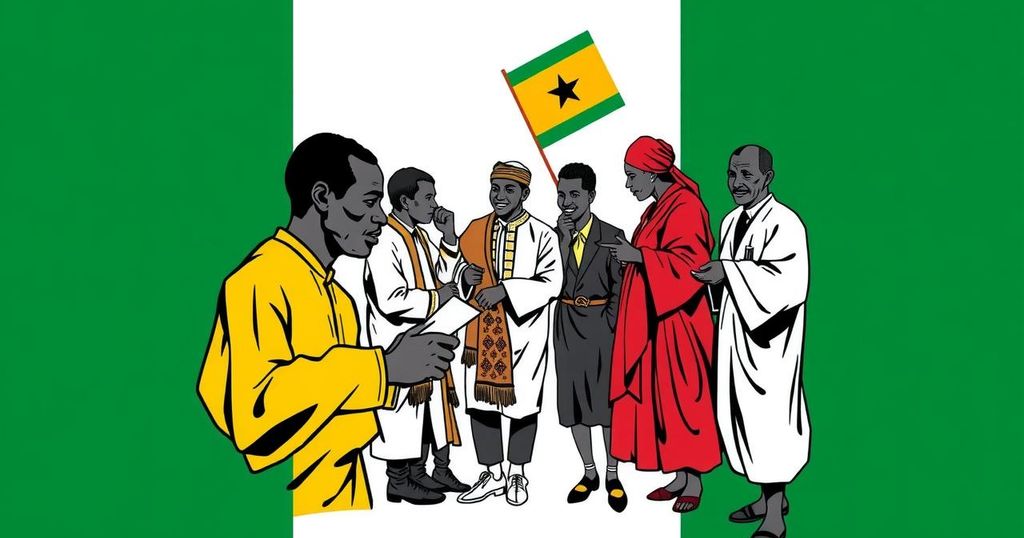Tribal and Religious Voting Poses Threats to Ghana’s Democracy and Growth

Michael Donyina Mensah, Executive Director of CenPOA, warns against voting based on tribal and religious affiliations, stating that such practices threaten Ghana’s democracy and impede development. Research indicates that these voting patterns prevent transformative progress and hinder the election of capable leaders. He urges voters to prioritize candidate integrity and competence, emphasizing the need for accountability and national unity in elections.
Michael Donyina Mensah, the Executive Director of the Centre for Public Opinion and Awareness (CenPOA), has expressed a significant concern regarding the impact of tribal and religious voting on Ghana’s democracy. He emphasizes that such practices not only threaten democratic integrity but also hinder national development. Donyina Mensah cites research indicating that campaigns centered on tribal affiliations restrict individuals from experiencing transformative improvements in their lives. Furthermore, he argues that these voting behaviors obstruct the election of competent and accountable leaders.
In his statements, Donyina Mensah characterizes tribal and religious voting as detrimental, stating that it diverts focus from essential qualities such as integrity and competence among candidates. He urges Ghanaian voters to prioritize policies and the credibility of candidates over sentimental affiliations, advocating for votes that reflect accountability and national unity.
During an interview on Rainbow Radio 87.5FM, he remarked on the responsibility citizens have to elect leaders capable of effectively managing the country, even if they share partisan ties with them. Donyina Mensah criticized the emergence of political parties that endorse tribal favoritism, underscoring the need for the nation to reject this trend to facilitate progress. He lamented the unconstitutional endorsements made by certain chiefs, which he views as contrary to the principles set forth by the country’s constitutional framers.
In conclusion, he asserts the importance of electing candidates based on their qualifications and ability to serve the nation rather than their tribal or religious backgrounds. This will ensure a more effective governance framework that adheres to the principles of fiscal discipline and constitutional integrity.
The article discusses the challenges posed by tribal and religious voting in Ghana, as highlighted by Michael Donyina Mensah, who leads the Centre for Public Opinion and Awareness. This focus on ethnic and religious affiliations during elections not only threatens the democratic framework but also stifles national growth. The concerns raised seek to draw attention to the necessity of electing leaders on a meritocratic basis rather than sentimental ties, suggesting that such practices undermine the nation’s governance and development potential.
In summary, Michael Donyina Mensah’s warnings against voting along tribal and religious lines underline a critical need for rational decision-making among voters in Ghana. He advocates for an electoral approach that prioritizes candidate accountability and competence, which is paramount for the successful governance and advancement of the nation. Without a shift towards this mindset, Ghana risks stagnating in its developmental efforts and compromising its democratic integrity.
Original Source: www.ghanaweb.com







